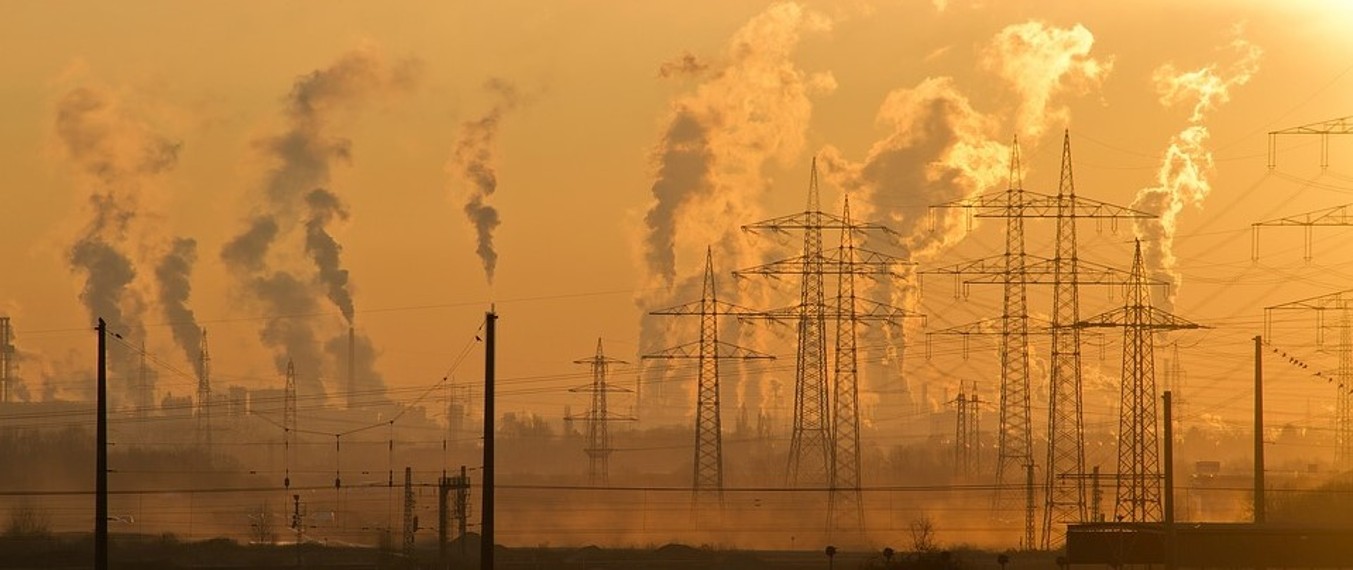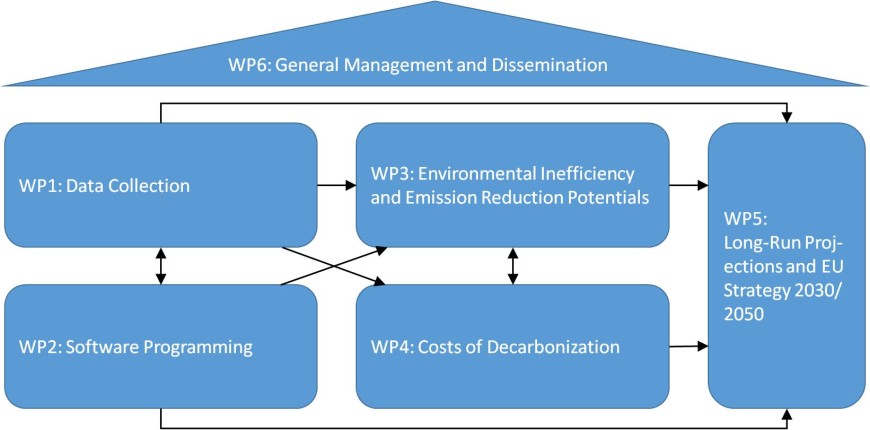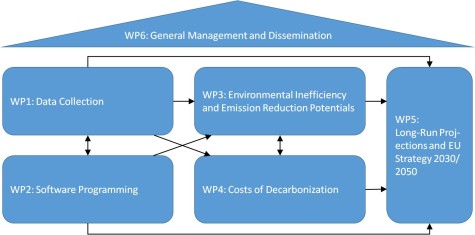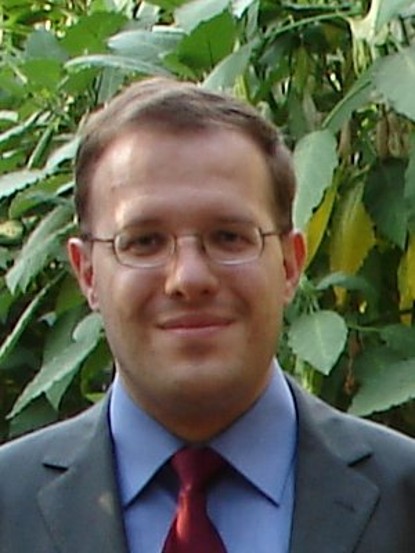Macroeconomic Inefficiency and Emission Reduction Potentials: Accounting for Heterogeneous Industry Structures (EcoEff)
Objective of the Project
The analyses conducted within the project evaluate potentials to reduce greenhouse gas and air pollutant emissions by improving the exploitation of current production possibilities. The main objective of the project comprises the quantification and statistical validation of reduction potentials for environmentally harmful pollutants by increasing the environmental efficiency given the industry structure as well as taking into account potential structural changes in the industrial composition. Therefore, the macroeconomic environmental efficiency (hence, the potential of countries to operate their economic activities with minimal emissions) is evaluated for Germany and the EU countries in an international setting. Based on these results, the costs for reaching the EU targets for 2030 and 2050 as well as for achieving complete decarbonization are estimated and potential effects on the competitiveness of the industries are derived.
Structure of the Project
The project comprises six work packages (WP) which are conducted by scientific teams at Darmstadt University of Technology and the University of Kassel. In a first step, the data set required for the analyses is compiled by merging production as well as emission data. Moreover, the required methods for efficiency analyses are implemented in a statistical software. Following this initial phase of the project, additional work packages comprise the evaluation of reduction potentials for the emissions and the estimation of the costs of decarbonization strategies. In the last work package, long-run projections analyzing different scenarios are conducted. Based on the empirical results, implications for the German and European economic and environmental policies are derived. To facilitate exchange with researchers and stakeholders, the methods and results of the project will be presented and discussed during workshops accompanying the project.
Tasks of the Project
Within the project, a focus will be on analyzing the efficiency of industries in the EU countries and the efficiency of the overall industry structure as well as on quantifying the extent of potential efficiency improvements. The benchmarking methods compare production processes across countries, identify reference countries and quantify inefficiency with regard to unexploited emission reduction potentials. The estimation of inefficiencies is based on recent nonparametric methods which require only weak assumptions regarding the structure of the production technologies. Based on the efficiency results, short-, medium- and long-run emission reduction potentials can be quantified. The results also allow for an estimation of industry- and country-specific abatement costs. The precision of the results will be statistically validated by computing uncertainty bounds (confidence intervals).
Outcomes of the Project
The empirical results as well as the applied methods will be summarized in discussion papers and made available on this webpage. The discussion papers will then be submitted for publication in scientific journals with a focus on environmental economics. In addition, the functionalities of the program codes will be made available using a web interface.
- Fait, L. (2022), Emission Reduction Potentials and Abatement Costs of Energy-Intensive Industries in Europe. Work in Progress.
- Fait, L., Krüger, J.J., Tarach, M., Wetzel, H. (2022), Trend Projections of Greenhouse Gas Emission Reduction Potentials: A Bootstrap-Based Nonparametric Efficiency Analysis. SSRN Working Paper. (link (opens in new tab))
- Fait, L., Wetzel, H. (2022), The Value of Greenhouse Gas Emission Reduction in Europe. MAGKS Discussion Paper No. 21-2022.
- Krüger, J.J., Tarach, M. (2020), Greenhouse Gas Emission Reduction Potentials in Europe: A Nonparametric Efficiency Analysis Approach Using Sectoral Data. SSRN Working Paper. (link (opens in new tab))
- Krüger, J.J., Tarach, M. (2021), Greenhouse Gas Emission Reduction Potentials in Europe by Sector: A Bootstrap-Based Nonparametric Efficiency Analysis, Environmental and Resource Economics 81, 867-898. [SSRN Working Paper. (link (opens in new tab))]
- Database:
- sectoral data for work packages 3 and 4 (CSV file link)
- macroeconomic data for work package 5 (CSV file link)
(a detailed description of the data sources and the data handling is provided in the papers referenced above) - Web interface for conducting analyses (link (opens in new tab))
Contact Persons
Prof. Dr. Jens Krüger
Technical University of Darmstadt
Department of Law and Economics
Chair for Empirical Economics
Hochschulstraße 1, D-64289 Darmstadt
E-Mail: krueger@vwl.tu-…
Prof. Dr. Heike Wetzel
University of Kassel
Department of Economics
Chair for Economics with a Focus on Dezentralized Energy Economics
Nora-Platiel-Straße 4, D-34109 Kassel
E-Mail: heike.wetzel@uni-…
Funding
The project is funded by the German Federal Ministry of Education and Research (BMBF) within the Funding Priority “Economics of Climate Change”.
The project interacts with other projects of the funding priority within the Dialogue on the Economics of Climate Change and contributes to knowledge transfer.







